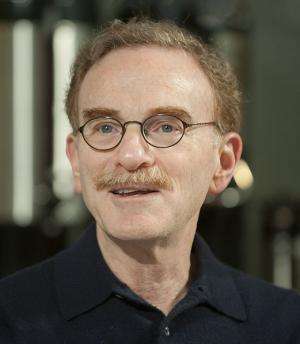December 10, 2013 weblog
Nobel winning scientist to boycott top science journals

(Phys.org) —Randy Schekman winner (with colleagues) of the Nobel Prize this year in the Physiology or Medicine category for his work that involved describing how materials are carried to different parts of cells, has stirred up a hornet's nest in the scientific community by publishing an article in The Guardian lashing out at three of the top science journals—Science, Cell and Nature.
In the article Schekman claims that scientific research is being "disfigured by inappropriate incentives." He maintains that the top science journals are artificially inflating their stature by keeping the number of articles they publish low. He asserts that the practices of the top journals is causing undo difficulties with young researchers who have become convinced the only true measure of success is publication in one of the top tier journals.
He continues by suggesting that because the top tier journals are run by editors, rather than scientists, it's often the flashiest articles that get published, rather than the best or most relevant.
Schekman offered hints of his dissatisfaction with the publication process when he took a position as an editor at eLife, an online science journal that prints research papers—it's also peer reviewed, but doesn't charge an access fee.
In his article he suggests that many researchers and organizations cut corners in order to focus more clearly on the "wow" factor and as a result the number of papers being retracted by science journals is on the rise, which of course includes some very high profile instances, such as by some who are supposedly involved in the cloning of human embryos.
Schekman also takes issue with the concept of paper quality being linked to impact factor (a metric that describes how often a paper is cited)—suggesting it might be as much of an indicator of a hot topic, or even an article that is simply wrong, as it is for describing good science.
He concludes by adding to the chorus of supporters of open-access journals and suggests that those that offer funding for research join the effort, as they are jointly responsible for the maintenance of the flawed status-quo due to continuing to base decisions on article representation in high profile journals, rather than on overall quality of work or appearance in lower tier journals.
Editors from Nature, Life and Cell have all responded to Schekman's accusations, and for the most part have denied that their articles are popularity based—insisting that article acceptance is based strictly on science and quality.
© 2013 Phys.org


















